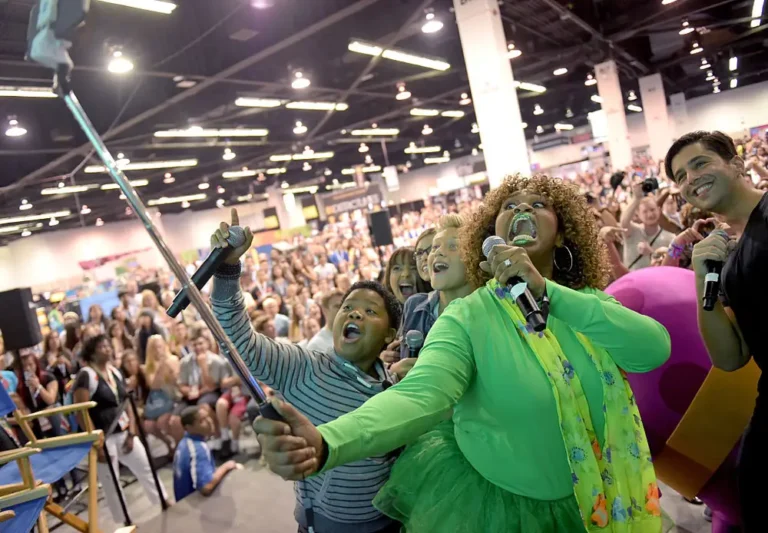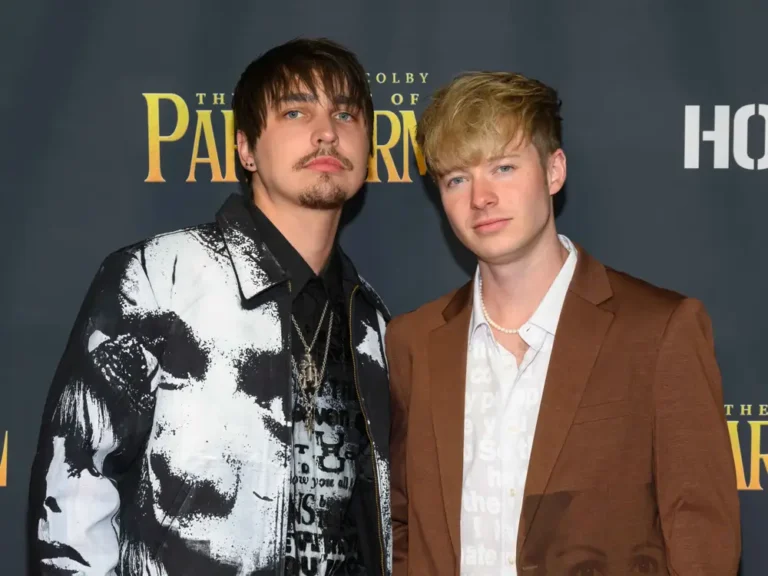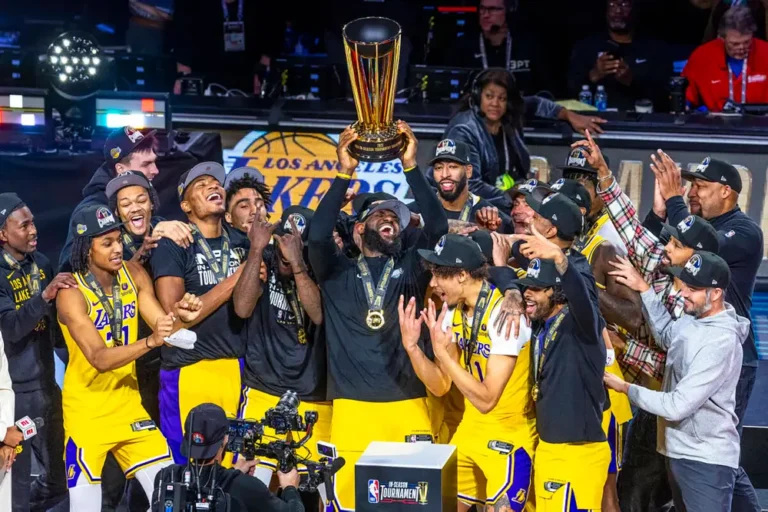Carol Kane never thought she’d have a career in comedy

When Gene Wilder approached her about acting opposite him in the classic parody “The World’s Greatest Lover” she thought he was “out of his mind.” Decades later, Kane has proven her comedy chops a hundred times over.
Watching Carol Kane onscreen, it’s impossible not to notice her eyes.
Her expressive gaze — which has conveyed everything from Gitl’s resilience in “Hester Street” to the flat-out terror of Jill Johnson in the thriller “When A Stranger Calls” to the frantic eccentricity of Lillian Kaushtupper in “Unbreakable Kimmy Schmidt” — has helped cement her as one of the most recognizable character actors of her generation.
It’s the same in person. Kane’s eyes widen when she talks about what it was like to work with her dear friend Jack Nicholson in two of her earliest film roles, reuniting with her “Taxi” costars via regularly scheduled Zoom calls, and the possibility of reprising her memorable “Princess Bride” role in Muppet form. She catches your attention, draws you in, and doesn’t let go.
Her mesmerizing appeal is the secret sauce in her latest film, Nathan Silver’s indie comedy-drama “Between the Temples.” Kane stars opposite Jason Schwartzman as Carla, a widowed former teacher and adult bat mitzvah student who convinces her former student Ben (Schwartzman), a widowed cantor experiencing a crisis of faith, to teach her the rites of passage for the ceremony typically performed by Jewish adolescents. Along the way they form a sweet, unexpected, but somehow completely believable bond.
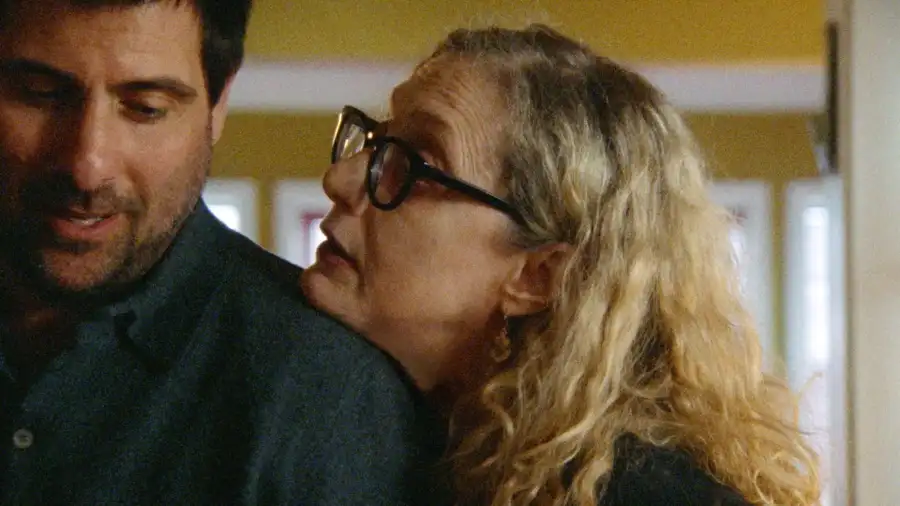
Kane with Jason Schwartzman in “Between the Temples.”
For Kane, signing on to work with Schwartzman was a no-brainer. “That’s why I did the movie to begin with, was somebody told me I had an offer to do a movie opposite Jason Schwartzman. I said, ‘Let me at it,'” she tells B-17. She was even willing to brave the challenges of improv work once she saw Silver’s earlier project, “Cutting My Mother.”
“Even though there was no script, really, I decided I got to take a chance,” Kane says.
The chance paid off. The film is filled with both hilarious and genuinely heartfelt improvised moments from both leads. Ultimately, “Between the Temples” is a perfect showcase for both the comedic and dramatic talents of Kane, who landed an Oscar nomination for her breakthrough role in the 1975 drama “Hester Street” and dipped her toe into comedy only when Gene Wilder convinced her to give it a try in “The World’s Greatest Lover.”
For the latest interview in B-17s “Role Play” series, Kane reflects on her storied career, from her nervousness playing off of Billy Crystal in “The Princess Bride” to the role she’d crawl on her hands and knees to reprise.
On her ballet skills becoming a punchline in ‘Scrooged’ and keeping up with her ‘Taxi’ costars via Zoom
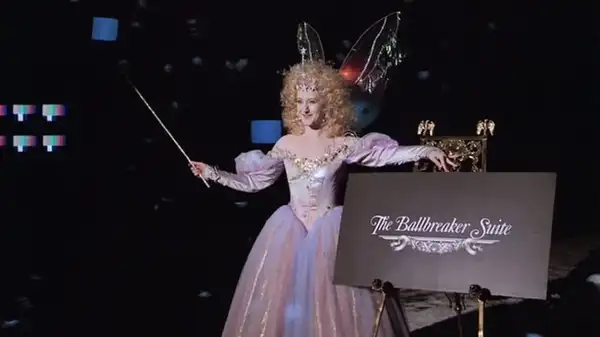
Kane in “Scrooged.”
You did a little bit of improv before “Between the Temples,” like in “Scrooged,” right?
Yes, some. One thing that was sort of improvised — with the extraordinary support of Dick Donner, the director — was the ballet that I had to do at the very beginning of when the fairy lands. I worked really hard with a wonderful teacher on it, and I got on pointe and I thought I was doing a really good job.
And then our genius art director, Michael Riva, who’s gone now, he came to see a rehearsal before Dick had seen it. I was doing my best and he just started cracking up. It was the stupidest thing he ever saw.
It was supposed to be done with a [ballet] double. Then because of Michael and Dick being open to the accidents of the moment, which is sort of a thing about improvisation, Michael said to Dick Donner, “I think you should just let her do it and it’ll be so funny.” Which was not my goal! As I said, my goal was to do a lovely job of getting on pointe and doing this little ballet.
Of course “Taxi” wasn’t improvised, but I know that Andy Kaufman sort of had a —
That language was improvised around what Andy taught me, which came from the character that he had called Foreign Man. But the writers wrote everything out in English, so we knew what we were saying and we knew what the emotions behind them needed to be, et cetera.
And then we just, thanks to Andy, opened our mouths and started blabbing that language.
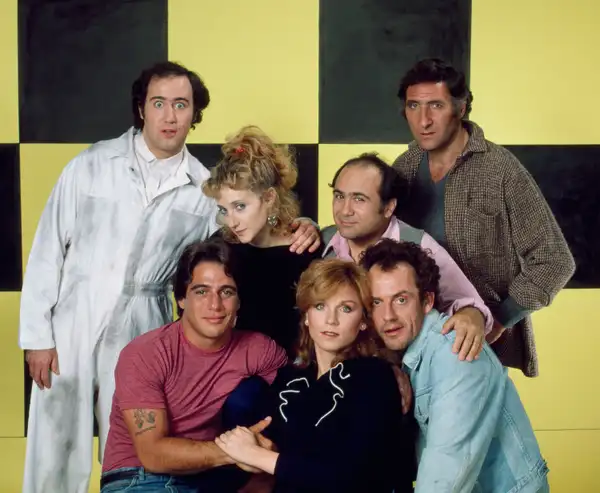
Kane and the cast of “Taxi.”
I know that several of your “Taxi” costars have died, but are you still in touch with any of the others?
All of them. All thanks to Marilu Henner, who’s got that special genius memory thing, you know about that?
So when we went into COVID, she arranged these Zooms for us and we’re still doing it. And it’s everybody. It’s Danny [DeVito], it’s Jim Brooks, it’s Tony [Danza], it’s Chris [Lloyd], it’s me, it’s Marilu, it’s Judd [Hirsch].
And we love it, we just love it.
On Jack Nicholson’s quiet generosity
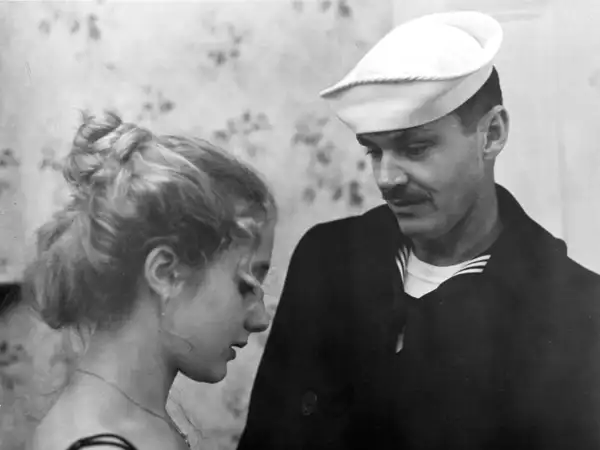
Kane with Jack Nicholson in “The Last Detail.”
Your first onscreen credited role was when you were 17 and did “Carnal Knowledge.” What was it like being on a film set for the first time with the likes of Jack Nicholson and Art Garfunkel?
That was a miracle.
I was so terrified to be in that kind of company and somehow maybe let [director] Mike [Nichols] down, or maybe Jack down or somebody down. And then Mike let me know that that wasn’t going to happen because I was perfect for the part. Now, whether that was true or not, I don’t know, but Mike told me and I believed everything he said. He was a genius and he was so kind to me.
Then you reunited with Jack a few years later, in “The Last Detail.”
On “The Last Detail,” I still was young and pretty inexperienced about the camera and all that stuff, and Jack knew everything about it. The scene I had with Randy Quaid — I was a hooker [credited as “Young Whore”] and he was my john — Jack brings Randy into the room, introduces us, and then leaves the room, and then the scene continues between me and Randy.
We shot in a little house in Toronto and come the time when Jack would leave, every single time, my instinct was to close the door because that’s what I was supposed to do. However, the camera was behind the door and had to see the rest of the scene.
So every single take of that scene, I would close the door — or so I thought — and every time Jack would stand right next to the camera, and when I went to close the door, he would put his hand there and stop it exactly where it needed to be so that the camera could see the rest of the scene. Every time.
He never said anything about it, he just stood there. I mean, somebody else could have done that.
It sounds like he was very protective of you on the set.
I think so. And also just a master and generous.
Are you guys still friends?
Yeah. I mean, I don’t get to LA very much anymore, so I don’t see him much. But I call him on the phone every so often and he’s a very dear person in my heart.
It’s a shame you guys didn’t get to work together a third time and that he’s retired now.
I guess it’s his privilege after all that hard, great work he did. I wish I got to do more with Jack.
Is there another collaborator you haven’t reunited with that you’d like to?
Yeah, so many! I wish I got to do more with my friend, Diane Keaton. I did two plays. I did a play with Gena Rowlands, and so I wish I’d gotten to do more with her. Did two plays with John Cassavetes, wish I had gotten to do more with him. Wish I’d gotten to do more with Hal [Ashby].
I really, really, really wish I’d gotten to do more with Mike [Nichols].
On earning an Oscar nomination for ‘Hester Street’ at 23 and her biggest career regret
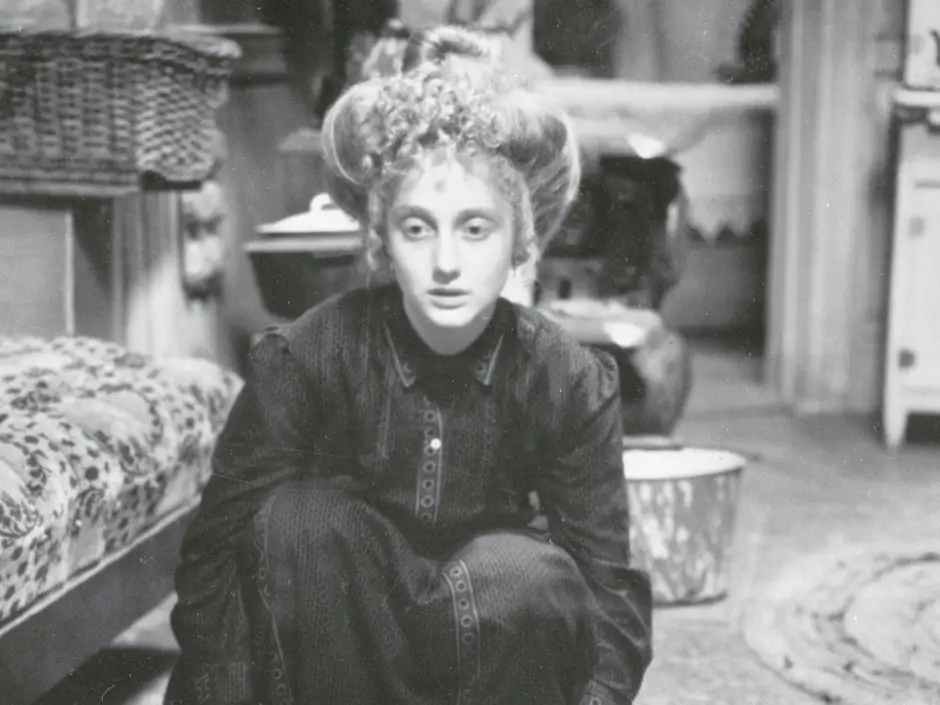
Kane in “Hester Street.”
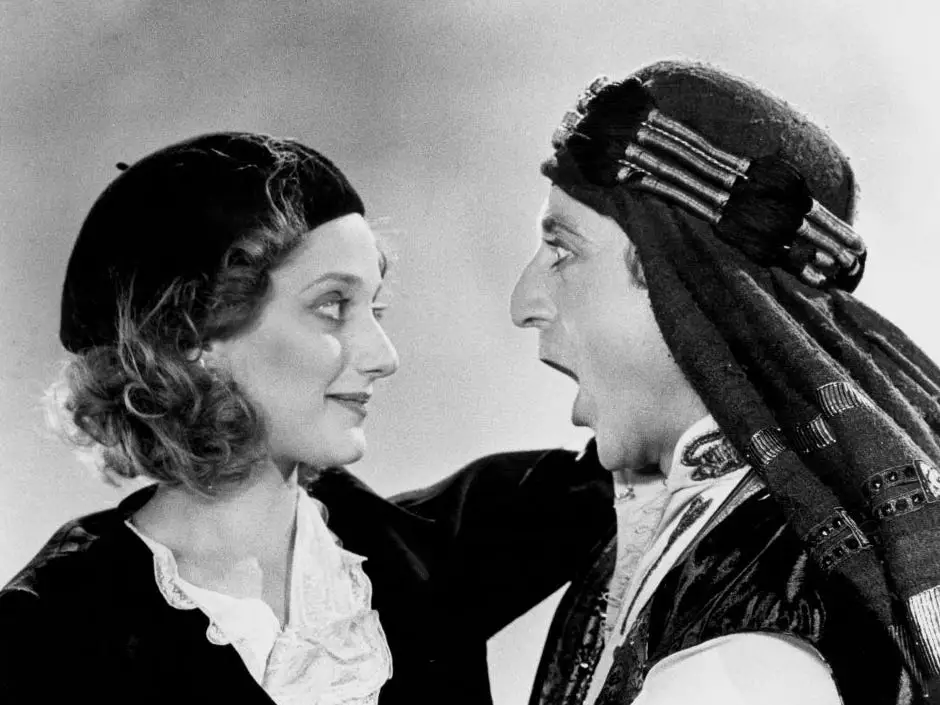
Kane with Gene Wilder in “The World’s Greatest Lover.”
Your career has had an interesting trajectory. I think a lot of your fans, especially the younger ones, may associate you more with comedic work. But “Hester Street” obviously was dramatic.
And “The Detail,” “Carnal Knowledge,” “Dog Day Afternoon.” Also a Canadian movie called “Wedding in White” that I starred in when I was 19 with Donald Pleasance, a great British actor. That was a very tragic story, a true story, and very dramatic.
What happened was after “Hester Street,” I didn’t work for a year. Then the phone rang and it was Gene Wilder, and he asked me to do this comedic role opposite him [in “The World’s Greatest Lover”] which, I thought he was out of his mind. I had no idea!
He saw something in Gitl in “Hester Street” that he thought was right for that part and I guess he didn’t care if I had done comedy before, which is kind of amazing.
Did you not think you could be funny, or were you just nervous to take on that kind of role?
I’d been on stage a long time and it just never occurred to me.
Did you want to do more dramatic work after “Hester Street”?
I think I would’ve liked to. Although, to tell you the truth, I was on my way to doing more, but I had an extremely difficult time handling the success that I got for “Hester Street,” getting nominated and stuff. I just couldn’t really take it.
I was so young and couldn’t take it. I was offered a great, great, great role in a movie, and I just found a million ridiculous reasons why not to do it. I just couldn’t take it.
Lifelong regret.
On the biggest challenge of ‘Unbreakable Kimmy Schmidt’ and the only condition she’d accept a ‘Princess Bride’ remake
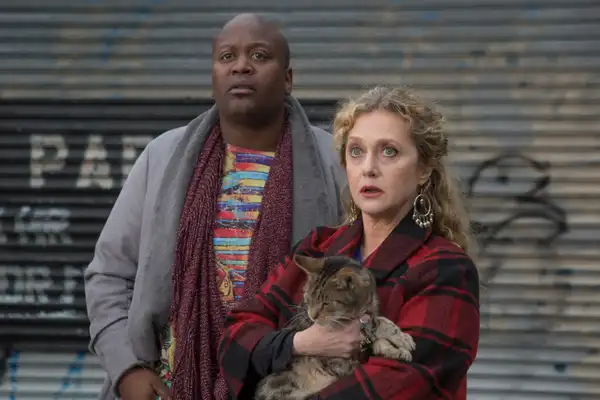
Kane with Tituss Burgess in “Unbreakable Kimmy Schmidt.”
A lot of younger folks now might know you best for playing Lillian on “Unbreakable Kimmy Schmidt.”
Oh, that’s so nice, isn’t it? I wish they hadn’t pulled the plug on that.
Would you ever return to that role if they wanted to do another continuation after the movie?
Oh yeah, I’d crawl on my hands and knees to do it.
What was it like working with Tina Fey?
Just a dream, she’s a dream. She’s so smart and she’s so down to earth, as is her husband, Jeffrey Richmond, who does the music, and her partner, Robert Carlock. She’s extremely generous.
For me, the only really difficult thing about that was that I was spoiled to do the four-camera comedy [on “Taxi”], with Jimmy Burrows directing, Jim Brooks and Ed Weinberger. And it was, you rehearsed five days a week like a play. And on the night of the fifth day, you did the play in front of cameras, so you had an audience, but you had it filmed. And you had the rehearsal like a play.
It was the perfect marriage for me, having started out on the stage and then film, and it was the perfect combo of both. Whereas nowadays, “Kimmy Schmidt” included, they don’t have an audience anymore. And maybe just because of my training on “Taxi” and “All is Forgiven” and “Cheers,” whatever, I found it very difficult to know if I was doing what was required without hearing any laughs.
No idea if the jokes are landing.
You have to just have your complete faith in Tina and Robert and Jeffrey and all of them. If it’s not funny, they’ll make you do it again. But it’s really, I guess just ego-wise, very nice to hear a laugh.
It is a shame that they don’t have that anymore, the live audience.
I don’t get it. I think it’s just such a great form and it’s so much easier on everybody because the hours aren’t so insane, like 14-hour shooting days.
I think the end result of “Kimmy Schmidt” was fabulous, but like I say, for me, it was a difficult transition to be in a comedy and not hear any laughs.
I wanted to touch on another of your iconic ’80s movie roles, “The Princess Bride.” What was it like sparring with Billy Crystal in that scene?
Oh, I was so intimidated because he’s such a genius at that. Talk about improv! Well, Billy, he’d just take off. I got to do a little, like the thing about the chocolate, that you can’t “go in swimming for at least an hour,” because that was my family’s tradition. But mainly Billy just took off there and it was just, you just had to hold on for dear life and hope that you could keep up.
I know that some of the other stars have talked about this before, how they very much oppose a reboot or a remake of any kind of “The Princess Bride.”
Oh, “The Princess Bride”? No, that would make no sense.
Exactly, that’s what everybody involved says — I know Cary Elwes, in particular, has been like, “No, don’t do this.”
Oh, no, not a good idea. But of course, they do remakes. Well, they remade “When a Stranger Calls.”
Did you watch that remake?
No, I don’t want… It was what it was at that time that it was, and it’s still, I think, a great horror movie.
For “The Princess Bride,” some fans have joked that the only acceptable reboot or remake would be a Muppets version, where all of you are Muppets.
That’s interesting, I never heard that, but that — I would watch that.
Would you show up as a Muppet Valerie in “The Muppets Princess Bride”?
Only if the rest of the cast came back. If we were all our Muppet versions, that would be tempting.

